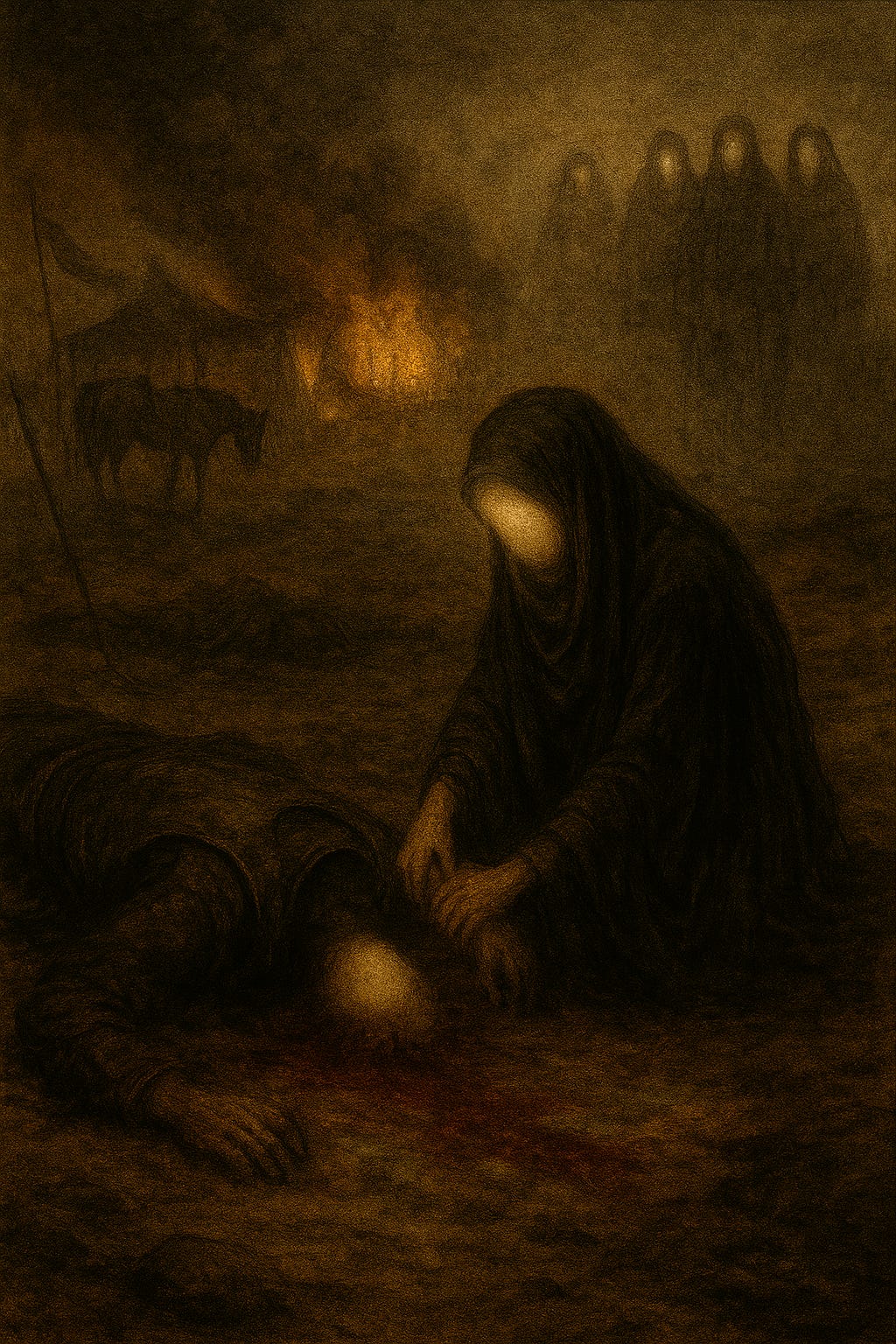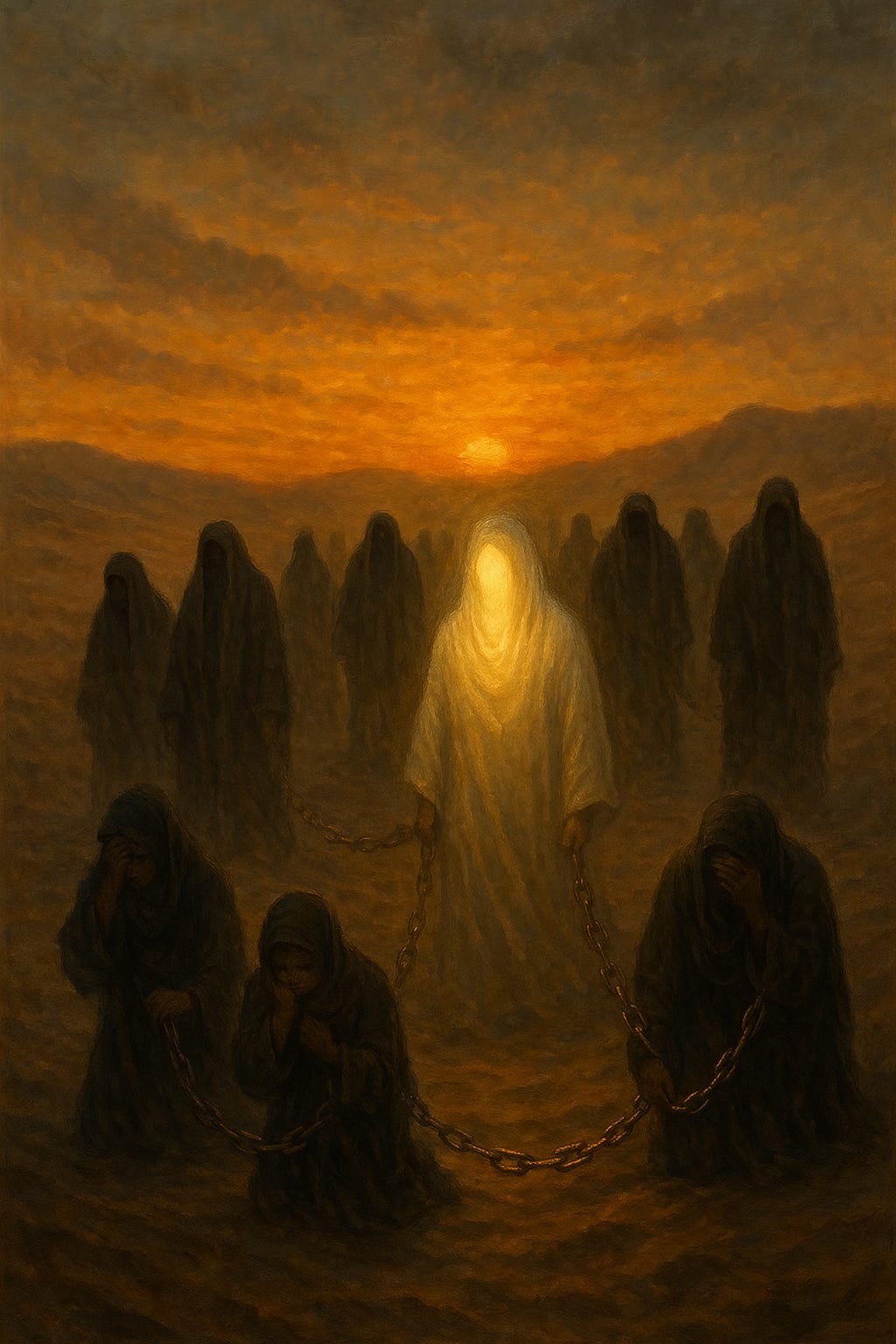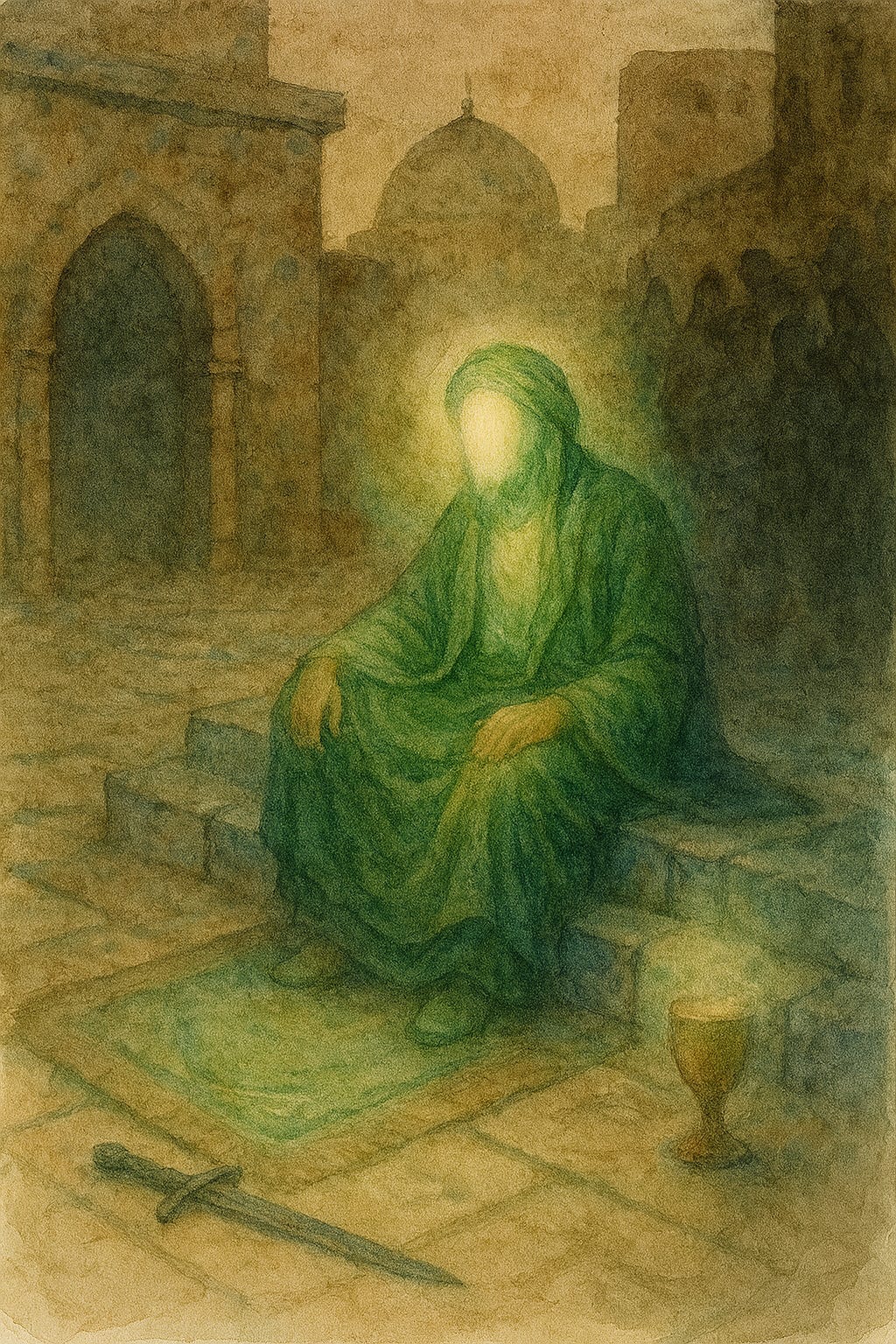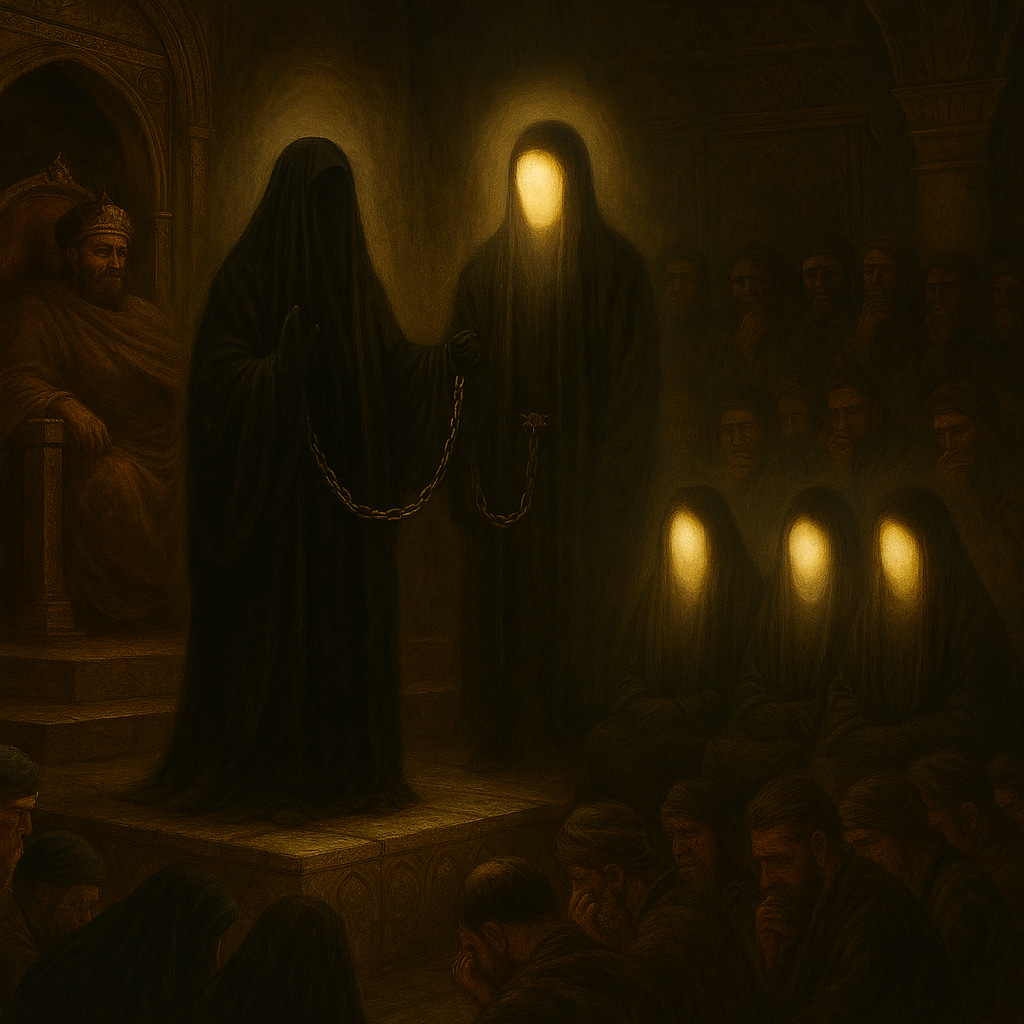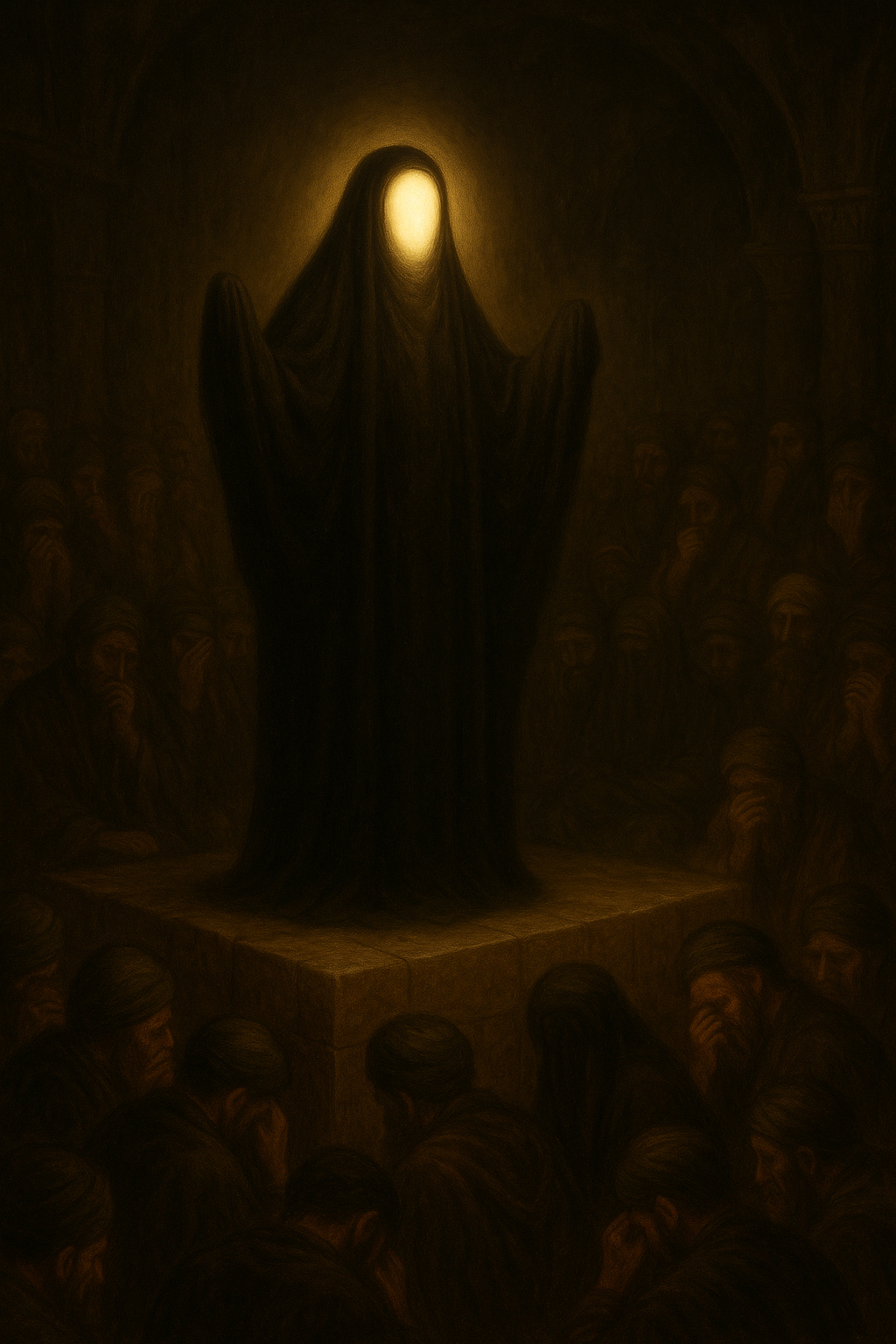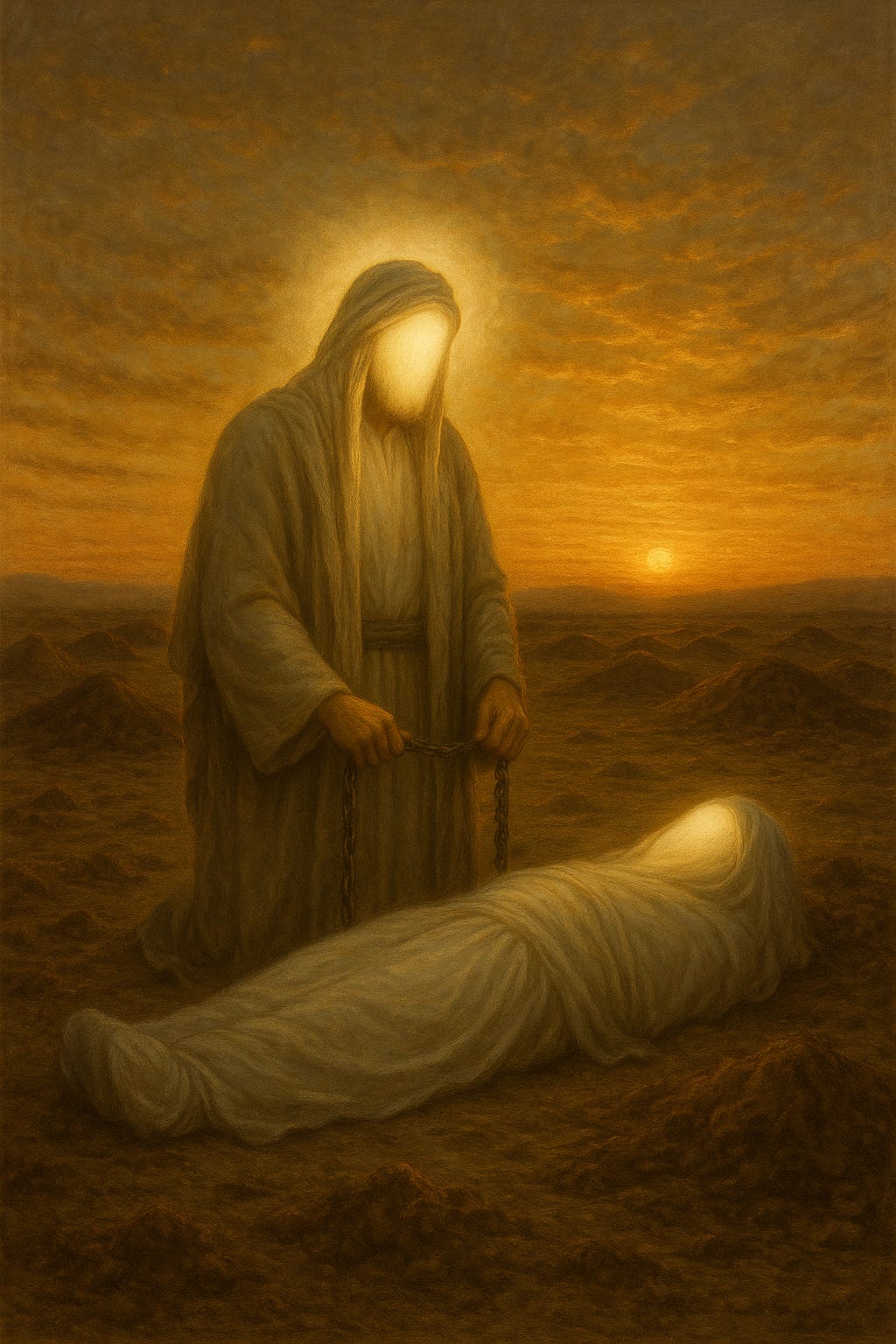[2] Arbaeen Maqtal - The Journey From Karbala to Kufa
This is a series of maqatil (martyrdom narratives - devotional recitations recounting the suffering and sacrifice of the Ahl al-Bayt, the family of Prophet Muhammad). These are for Arbaeen 2025/1447
In His Name, the Most High
بِسْمِ ٱللّٰهِ ٱلرَّحْمٰنِ ٱلرَّحِيمِ
ٱلْحَمْدُ لِلّٰهِ رَبِّ ٱلْعَالَمِينَ وَصَلَّى ٱللّٰهُ عَلَىٰ سَيِّدِنَا مُحَمَّدٍ وَعَلَىٰ أَهْلِ بَيْتِهِ ٱلطَّيِّبِينَ ٱلطَّاهِرِينَ ٱلْمَعْصُومِينَ، أَمَّا بَعْدُ
السَّلَامُ عَلَيْكُمْ وَرَحْمَةُ اللَّهِ وَبَرَكَاتُهُIn the name of God, the Most Gracious, the Most Merciful.
All praise is due to God, the Lord of all worlds, and may blessings be upon our Master Muhammad and upon his pure, purified, and infallible household. As for what follows:
Peace be upon you, and the mercy of God, and His blessings.
Video of the Maqtal (Eulogy)
Audio of the Maqtal (Eulogy)
A Tale of Suffering and Sublime Faith
The sun had barely set on the blood-soaked plains of Karbala when the family of Imam Hussain (AS) was forced to begin a journey that would etch itself into the soul of history. The air was heavy with grief, the silence broken only by the cries of children and the wails of the bereaved. The body of Imam Hussain, the beloved grandson of the Prophet, lay unburied on the scorching sands, his blood mingling with the dust, his noble head severed, his companions fallen around him. The women and children, their hearts shattered, were herded together, their tents looted and set ablaze, their dignity trampled by the soldiers of Yazid.
Towards Kufa
As the captives were driven from Karbala towards Kufa, every step was a torment. The chains that bound the noble family were not just of iron, but of sorrow and loss. The children, parched and exhausted, stumbled through the desert, their eyes searching for the faces of fathers and brothers who would never return. Lady Zainab (SA), the sister of Hussain, became their pillar—her courage unbroken, her faith unwavering, even as she bore the weight of unimaginable tragedy.
Remembrance of Amir-ul-Momineen
As the battered caravan of the Prophet’s family approached the gates of Kufa, Sayeda Zainab’s heart was a storm of grief and memory. The city’s walls, once familiar, now loomed with the shadows of betrayal. Every stone, every street, every echo in the air reminded her of a time when Kufa had been a place of hope—a place where her father, Amir-ul-Momineen Ali ibn Abi Talib (AS), had walked with dignity and justice.
She remembered the days when her father would ascend the pulpit in the grand mosque of Kufa, his voice resonant with wisdom and compassion.
“Ask me before you lose me,” he would call out to the people, offering the treasures of divine knowledge.
Yet, instead of seeking guidance, many would mock him, asking frivolous questions—
“How many hairs does my son have on his head?”—turning away from the light he offered.
She remembered how, in his loneliness, her father would pour his heart into the depths of a well, his words swallowed by the silence of indifference.
Now, as she entered Kufa, her eyes fell upon the same pulpit—no longer a seat of justice, but now defiled by the presence of Ibn Marjana, Ubaydullah ibn Ziyad, the tyrant who had ordered the slaughter of her brother and kin. The memory of her father’s pain returned with fresh agony: how the people of Kufa had turned against him at Siffin, forcing him into arbitration, opening the door for Muawiya’s treachery and the usurpation of the caliphate. She remembered the night of the 19th of Ramadhan, when her father was struck by the poisoned sword of Ibn Muljim as he bowed in prayer. She could still see him lying on his deathbed, the poison coursing through his body, his face radiant with patience and faith, until he finally attained martyrdom.
Memory of Imam Hassan
Her thoughts turned to her brother, Imam Hassan (AS), whose loneliness in Kufa was a wound that never healed. She remembered how he was attacked during his prayers, how his own companions abandoned him, forcing him to accept a treaty with Muawiya and relinquish the caliphate for the sake of the ummah’s unity. How the ummah would mock and slander him, yet in spite of all of this he would display profound wisdom and patience. He too would be martyred, through treachery and betrayal. His own wife being the one to administer the poison, destroying his liver and causing him to have an excruciating and painful death. She remembers how he vomited his own liver, before eventually returning to his Lord.
Ladies of the Household Unveiled in streets of Kufa
The women of the Prophet’s household, who had always been shielded by the veils of honour and respect, were now paraded through the streets unveiled, their heads uncovered before the eyes of the crowd. The people of Kufa, struck by the sight of the Prophet’s family in such a state, wept and lamented. Some covered their faces in shame, others lowered their heads, unable to bear the sight of the daughters of Fatima and Ali exposed to public gaze.
Letters to Imam Hussain and the abandonment of Muslim
And now, the faces in the crowd—these were the same people who had written letters to her brother Hussain, inviting him to Kufa, promising loyalty and support. She remembered the hope in Hussain’s eyes as he sent their cousin, Muslim ibn Aqeel, to Kufa. But hope turned to heartbreak as news reached them: Muslim, too, was betrayed and abandoned, left to wander the streets alone, seeking shelter, before being captured and killed by Ubaydullah ibn Ziyad. His body was dragged through these very streets, the same streets that now watched the Prophet’s daughters paraded in chains.
Lady Zainab rises and delivers her sermon
In the midst of this anguish, the voices of the Ahl al-Bayt rose, each a beacon of truth and defiance. Lady Zainab, her face veiled as much as she could manage, her voice steady, rose to address the people. Her words cut through the crowd like a blade:
Lady Zainab’s heart burned with righteous anger and sorrow. Her voice, though weary, thundered with the weight of history and truth. She vented her pain in a sermon that would echo through the ages:
“O people of Kufa! O people of deception and betrayal! Do you weep? Woe upon you! You are like the woman who spins her yarn, only to then break it into pieces. You pledge loyalty, only to betray. You call with your tongues, but your hearts are empty. You have destroyed yourselves by your own hands and lost your own future. You invited my brother with your letters and then turned your swords against him. You abandoned the son of the Prophet, and now you weep for him? May your tears never dry, you killed the son of the Prophet, and now you cry for him? Your betrayal is written in the heavens and the earth. You have prepared an evil provision for your afterlife, for you have slain the support of the time, the son of the Seal of Prophets, the master of the youth of Paradise”
Her sermon silenced the crowd, their shame laid bare by her truth. Even the hearts of the hardest men trembled at her eloquence and the depth of her pain. Her words fell upon the crowd like a storm, exposing their shame, their cowardice, and their broken promises. In that moment, Sayeda Zainab was not just a grieving sister—she was the voice of truth, the inheritor of her father’s courage, the conscience of a nation lost to its own treachery.
As Lady Zainab’s voice rang out in the heart of Kufa, her words were not confined to the people gathered before her. Her sermon was a message for all of humanity, for every age and every heart that might one day stand at a crossroads between loyalty and betrayal, between truth and convenience.
Her warning was not just for those who had written letters to Imam Hussain and then turned their backs. It was for all who, with their tongues, profess love and allegiance to the truth, but whose actions falter when sacrifice is required. Her words echo through the centuries, reaching every soul that claims to await the saviour, the Imam of their time.
She seemed to say: Beware, lest you become like the people of Kufa—those who invited the Imam with promises and oaths, but when the test came, abandoned him to stand alone. God forbid that we, too, should call upon the Imam of our age, Imam al-Mahdi (AJTF), with our words, yet betray him with our deeds, our indifference, or our fear. The tragedy of Karbala is not just a story of the past; it is a living lesson, a call to sincerity, courage, and unwavering loyalty.
Lady Zainab’s sermon is a mirror held up to every heart. It asks: When the time comes, will you stand with the truth, no matter the cost? Or will you, like the people of Kufa, spin the yarn of promises, only to break it when it matters most?
Her pain, her anger, and her hope are a legacy for all who await justice. May we heed her words, and may we never be among those who betray the trust of the Imam of our time.
Address of Lady Umm Kulthum
Lady Umme Kulthum, her voice trembling yet resolute, also addressed the people of Kufa. She reminded them of their broken promises, their letters and pleas that had summoned Hussain to their city, only to betray him at the hour of need. Her words were a lament and a rebuke, awakening the conscience of those who listened.
Address of Fatima Sughra
Fatima Sughra1, the young daughter of Hussain, though frail and grief-stricken, spoke with a wisdom beyond her years. She described the suffering of the children, the thirst, the terror, and the loss. Her innocent voice pierced the hearts of the listeners, making them weep for the pain they had caused.
Address of Imam Sajjad
Imam Sajjad (AS), though weakened by illness and chains, stood before the people and delivered a sermon that shook the very foundations of Kufa. He introduced himself as the son of Hussain, the grandson of Ali and Fatima, and the great-grandson of the Prophet. He spoke of the injustice and cruelty inflicted upon his family, and called the people to reflect on their actions and seek forgiveness from Allah.
Entering the court of Ubaydullah ibn Ziyad
Then, in the court of Ubaydullah ibn Ziyad, the cruelty of the oppressors reached its peak. The severed head of Imam Hussain was brought forth on a tray, placed before the tyrant and the assembled court. In a moment that seared itself into the memory of all present, Ubaydullah ibn Ziyad, with callous arrogance, struck the sacred lips and teeth of Hussain with his cane, mocking and belittling the grandson of the Prophet. The family of Hussain, bound and exhausted, were forced to witness this desecration, their hearts breaking anew.
At that moment, an old man in the court, his eyes brimming with tears, could bear it no longer. He cried out, his voice trembling with grief and outrage:
“Woe to you, O Ibn Ziyad! I have seen these very lips kissed by the Messenger of Allah. How dare you strike them?”
His words hung in the air, a testimony to the sanctity of Hussain and the cruelty of his enemies.
Lady Zainab responds to Ubaydullah ibn Ziyad
Lady Zainab, her eyes blazing with righteous indignation, stood tall and unbowed. When the tyrant taunted her, asking how she saw what God had done to her family, she replied with words that would echo through eternity:
“I saw nothing but beauty.”
In the face of cruelty, she saw only the fulfilment of divine will, the sacrifice that would awaken the conscience of the world.
The Impact of Lady Zainab’s sermon
The words of Lady Zainab (SA) fell upon Kufa like thunder, shaking the very foundations of the city. Her voice, steady and unyielding, exposed the truth of the tragedy and the guilt of its perpetrators. The people of Kufa, who had gathered to witness the humiliation of the Prophet’s family, found themselves instead confronted by their own shame and complicity. Many wept openly, their hearts pierced by her eloquence and the weight of her grief.
But it was not only the people who were moved. Ubaydullah ibn Ziyad, the governor who had orchestrated the massacre and now sat in arrogant authority, felt the force of Lady Zainab’s words like a blow. He had expected broken captives, silenced by loss and humiliation. Instead, he was faced with a woman whose dignity and defiance could not be chained, whose words stirred the conscience of the city and threatened to ignite its spirit.
As the murmurs of unrest began to ripple through Kufa, Ubaydullah grew uneasy. He saw the tears in the eyes of the people, the shame on their faces, and he feared that the truth spoken by Zainab might awaken them to rebellion. The memory of her father, Amir-ul-Momineen, still lingered in the city; the echo of his justice and the love the people once bore him could not be erased so easily.
Fearing that the presence of the Ahl al-Bayt in Kufa would become a rallying point for the oppressed, and that Lady Zainab’s words might spark an uprising against his rule, Ubaydullah made a swift and cruel decision. He ordered that the captives be sent immediately to Damascus, to the court of Yazid. He hoped that by removing them from Kufa, he could silence their voices and extinguish the flame of resistance that Zainab had kindled.
Yet, even as the caravan was forced to march once more—this time towards the distant and hostile land of Damascus—the words of Lady Zainab lingered in the air, a seed of truth and courage planted in the hearts of all who heard her. Ubaydullah could send the captives away, but he could not erase the memory of her defiance, nor the power of her sermon, which would echo through history as a testament to the unbreakable spirit of the Prophet’s family.
The burial of Imam Hussain and his companions
For three days, the bodies of Imam Hussain and his companions remained unburied, exposed to the burning sun and the trampling hooves of enemy horses. The heavens wept, and the earth mourned. At last, the noble tribe of Bani Asad, moved by the tragedy, came to Karbala. But the bodies were unrecognisable, and they did not know where to bury each martyr. It was with Allah’s permission that Imam Sajjad, returned to the battlefield. With tears streaming down his face, he identified each body—his father, his uncles, his brothers, his companions—and guided the Bani Asad to their graves. With trembling hands and broken hearts, they laid Imam Hussain to rest where he fell, his grave a beacon for all who seek justice and truth.
Imam Mehdi remembers Kufa and the betrayal
And in every moment of this tragedy, in every cry of pain and every act of betrayal, there was a witness whose heart bled with the family of Hussain: the Awaited Imam, al-Mahdi (AJTF). He is the inheritor of this sorrow, the one who will one day rise to avenge the blood of Karbala and to fulfill the promise of justice. The betrayal of the Kufans, the suffering of the Ahlul Bayt, and the tears of the oppressed are all inscribed in his heart. He is the living testament that the sacrifice of Hussain will never be forgotten, and that the day will come when truth will triumph over falsehood.
Thus ended the journey from Karbala to Kufa—a journey of suffering, but also of unyielding faith and immortal courage. Now the greater journey lay ahead. The legacy of Imam Hussain and his family would live on, their sacrifice a light that would never be extinguished, and their story a call to justice that will echo until the day of reappearance.
This is a reference to Sayyeda Khawla (Daughter of Imam Husayn)



